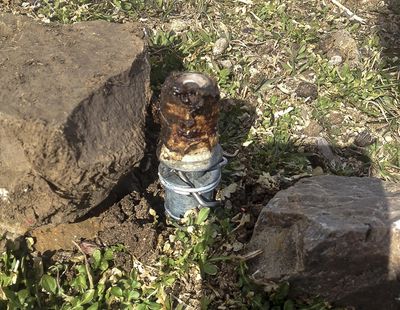Tentative deal reached on deadly ‘cyanide bombs’

BILLINGS – U.S. officials have reached a tentative deal with wildlife advocates trying to stop the use of predator-killing traps, including devices called “cyanide bombs” that earlier this year injured an Idaho teenager and killed his dog, according to court documents filed Thursday.
Government attorneys asked U.S. District Judge Dana Christensen to put on hold for 60 days a lawsuit over the poisoned traps pending final approval of the agreement by senior officials at the Interior Department.
Terms were not disclosed.
One of the devices named in the lawsuit, called an M-44, is partially buried and baited to attract predators. It sprays cyanide into the mouths of animals that trigger it.
M-44s are meant to protect livestock but sometimes kill pets and injure people.
The traps drew increased scrutiny after the Associated Press reported that the injuries to the boy near Pocatello, Idaho, in March came months after a decision to halt use of the devices on federal lands in the state.
Another device at issue is a type of collar filled with pesticide and placed onto livestock so the pesticide will be ingested by attacking predators.
The Humane Society, WildEarth Guardians and two other groups filed suit over the devices in April. They say the traps kill thousands of predators every year – primarily coyotes but also foxes, raccoons, opossums and other animals.
The lawsuit said the Interior Department’s Fish and Wildlife Service has not consulted with the Environmental Protection Agency on whether the poisons could harm federally protected species and their habitat.
Representatives of the U.S. Department of Justice, which is defending the case, and the Interior Department did not immediately respond to emailed messages from AP requesting comment.
Bethany Cotton with WildEarth Guardians declined to provide any specifics on the agreement. She said the goal was to stop the use of traps she described as “totally indiscriminate and incredibly dangerous.”
In June, federal officials said they would undertake an expanded review of cyanide traps, which continue to be used in other states. They also issued guidelines requiring federal workers to notify nearby residents of the placement of M-44s.